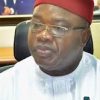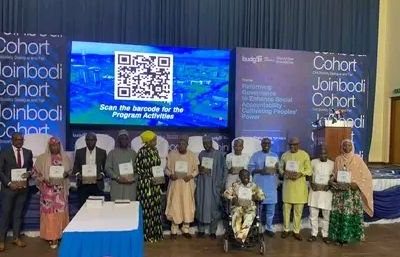CISLAC CALLS FOR AMPLIFIED CONVERSATIONS ON POPULATION CHALLENGES
The Executive Director, Civil Society Legislative Advocacy Center (CISLAC) and head of Transparency International in Nigeria, Mr Auwal Musa Rafsanjani has raised the need for amplified stakeholders and citizens’ conversations on Nigeria’s population challenges.
He made the pioneer call on tuesday in Abuja at the Nigeria population conversations serminar and unveiling of Nigeria population citizens’ perception survey report which was conducted by CISLAC/IT Nigeria and Population Matters a United Kingdom based organization on sustainable population, human rights, women empowerment and global justice.
He said that the current inadequate awareness on the consequences of population at the citizens’ level and policy formulations have affected national planning and inability to harness the population to achieve development goals.
He explained that the population conversation project was necessitated by the need to engender people oriented participation and harvest perceptions on Population to shape policy direction for well informed national planning to achieve overall demographic advantage.
He pointed out that the active participation by people across the six geopolitical zones in the population perception survey that led to the report is a clear indication of citizens’ readiness for constructive conversations on population and its impact on their well-being and livelihood.
He expressed optimism that the report will serve as baseline for more conversations on population and its fact finding expected to be leveraged by relevant state and non state actors to amplify conversations on population in shaping policy decision and direction towards inclusive planning and development in the country.
Giving details about Nigeria’s population challenges, Mr Rafsanjani said that the lack of conversations and actions on population have been buttressed by the multiplier effects of youth unemployment, insecurity, inaccessible healthcare services, food insecurity, education inequality, accelerated level of prostitution, armed robbery, divers facets of violence and other challenges that undermine the socio-economic development of Nigeria.
He said that Nigeria’s population if not curtailed has been predicted to reach 400 million by year 2050 from its present daunting challenges of over 200 million.
He disclosed that over 50 percent of girls are not attending school at the basic education level, while 1,000,000 girls drop out between the first and last years of primary school.
He said that Nigeria accounts for 20 percent of all out-of-school children in sub-Sahara Africa with close to 20 million out-of-school children.
He also said that youth unemployment rate released by the National Bureau of Statistics shows that about 53.40 percent of youths are unemployed.
He further recommended that Nigerians should start embracing the idea of smaller families to boycott ravaging poverty, youth unemployment, child mortality and other socio-economic problems.





